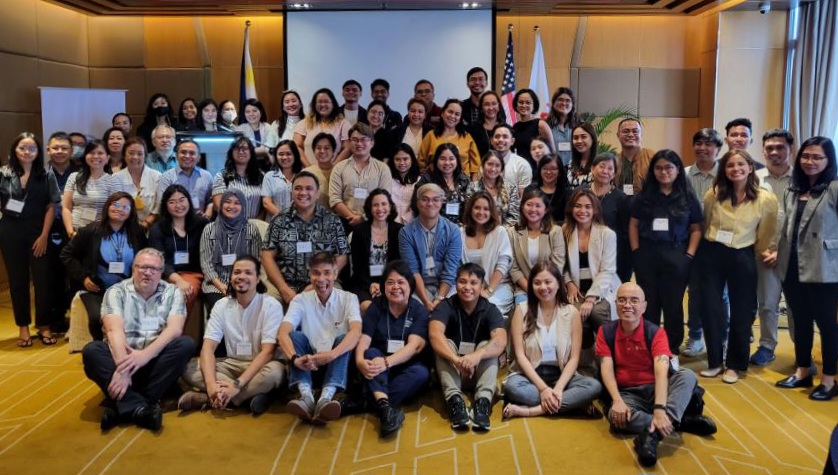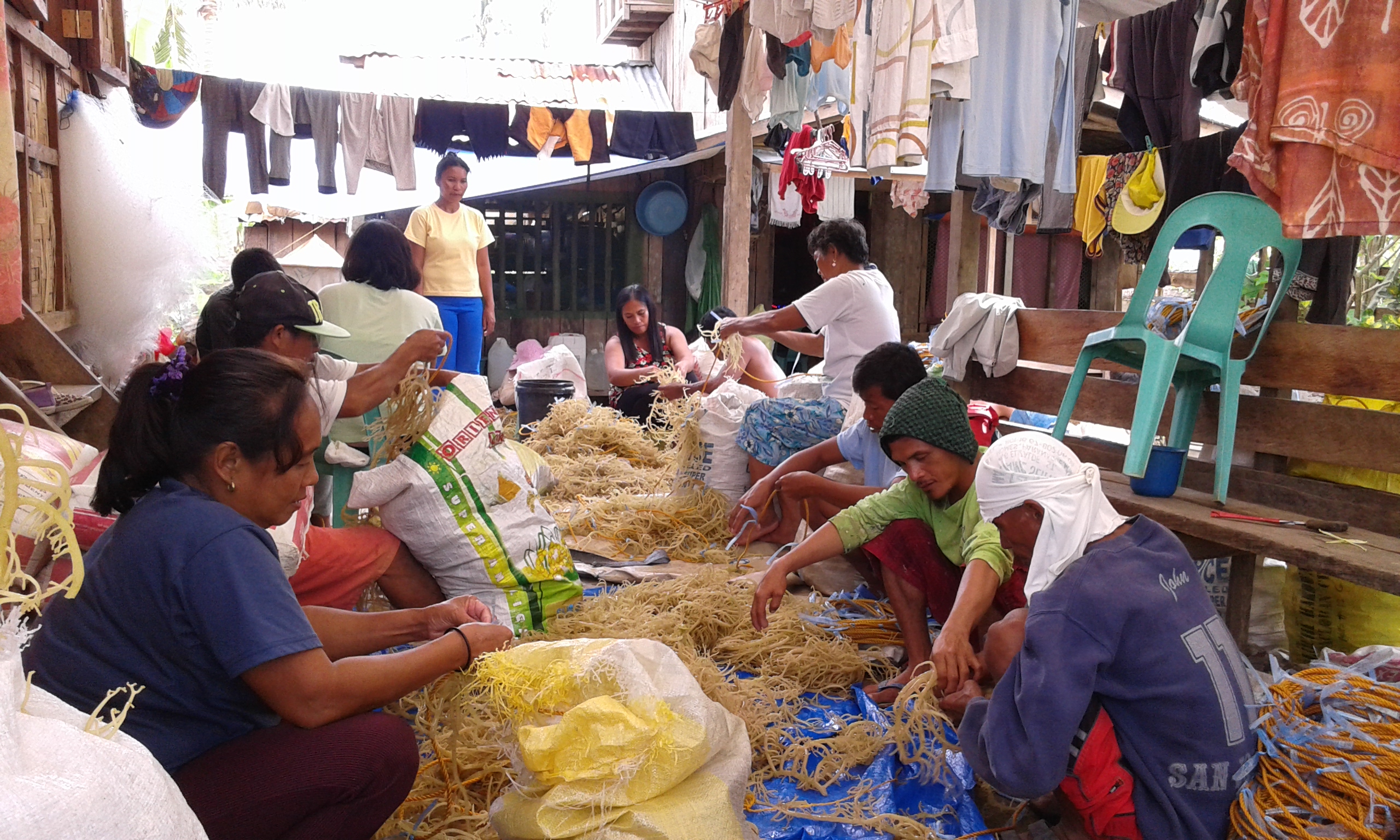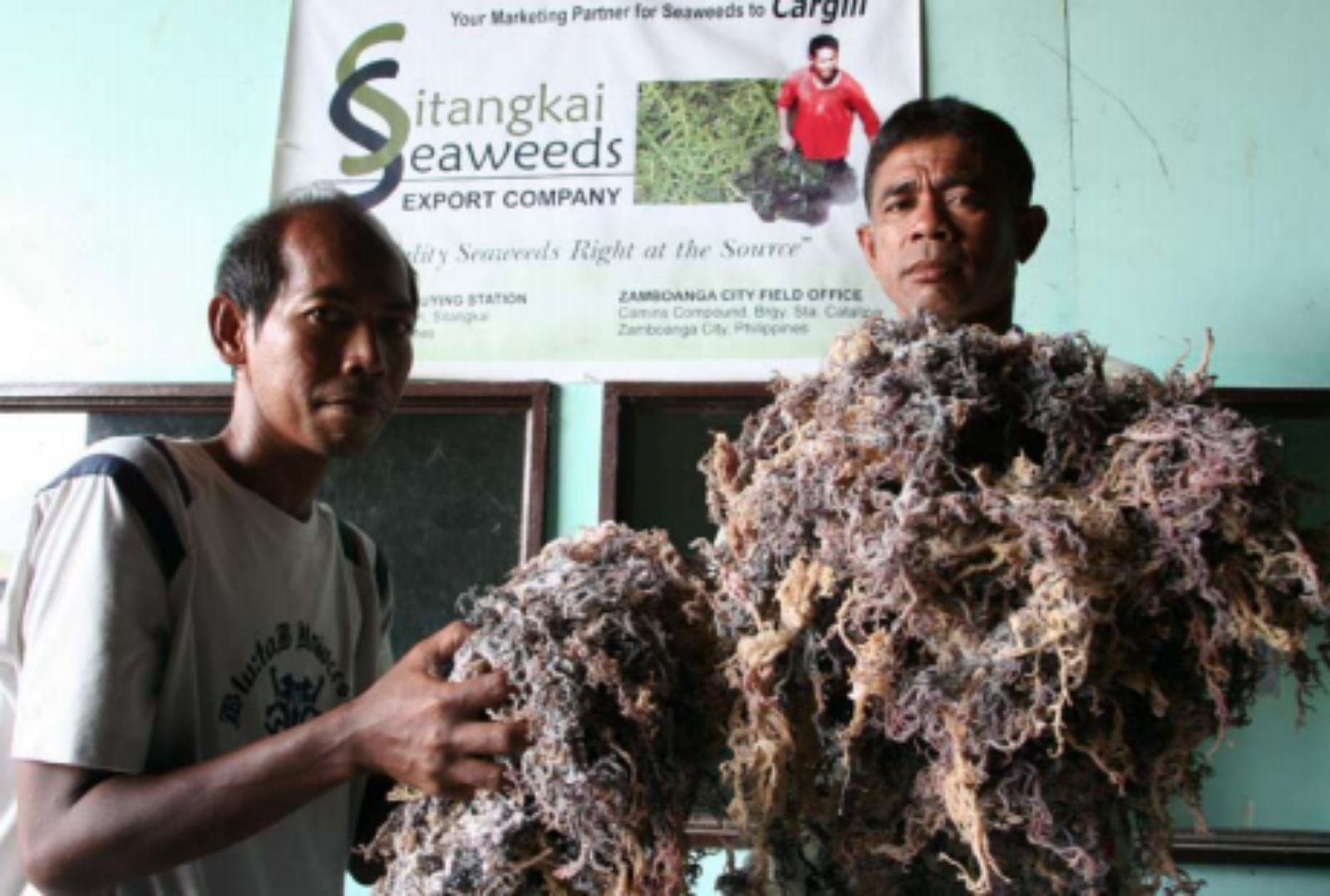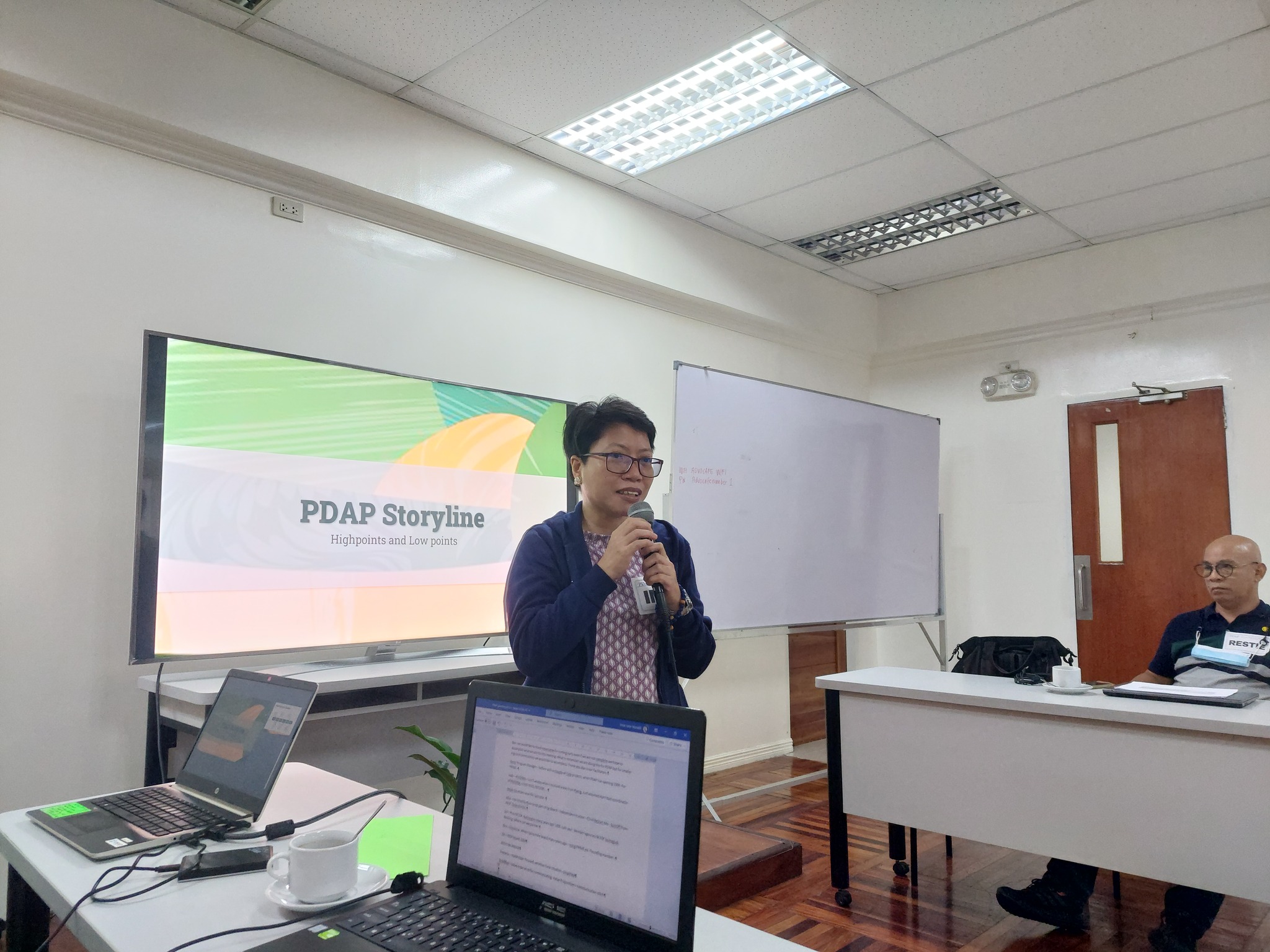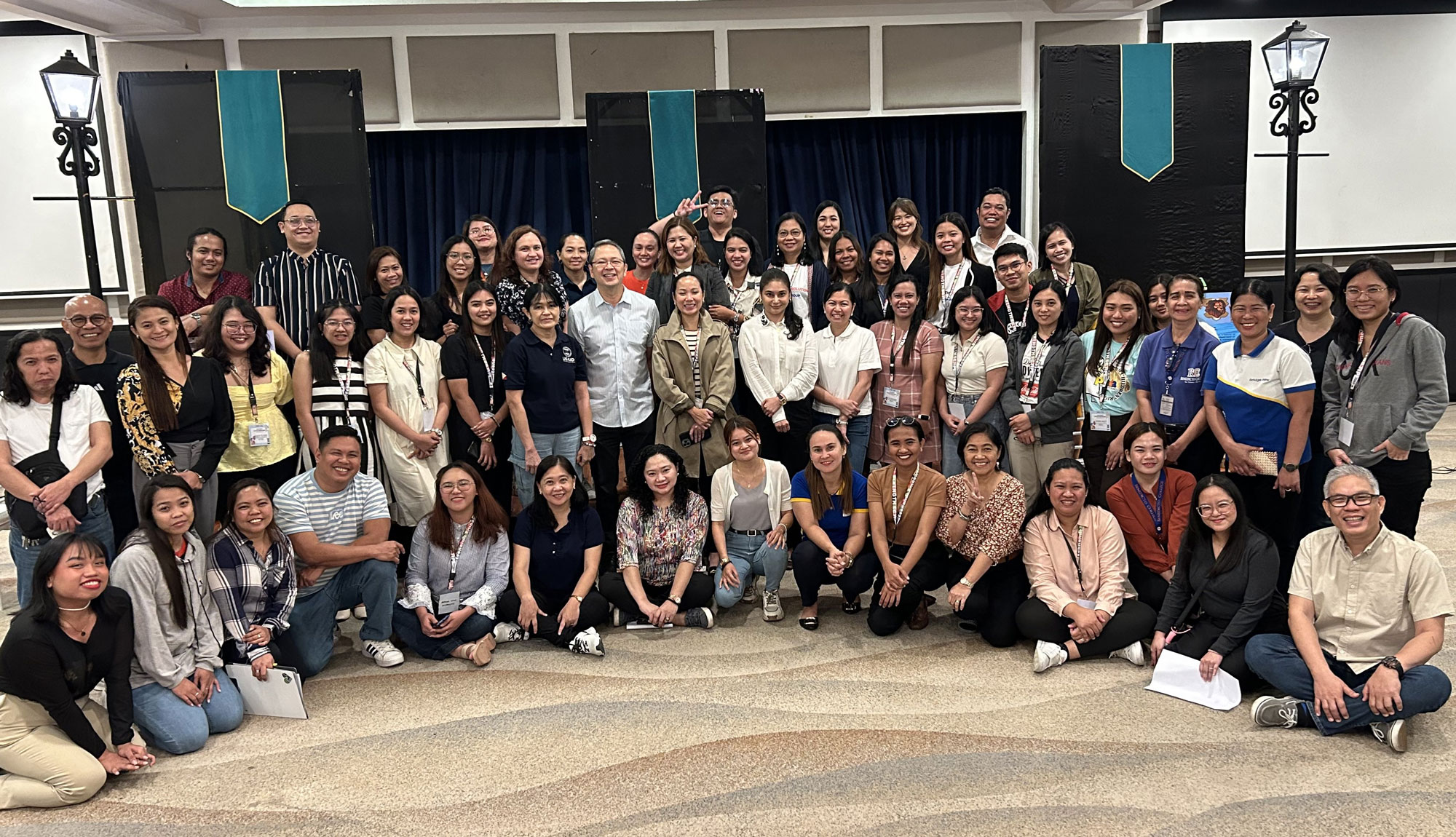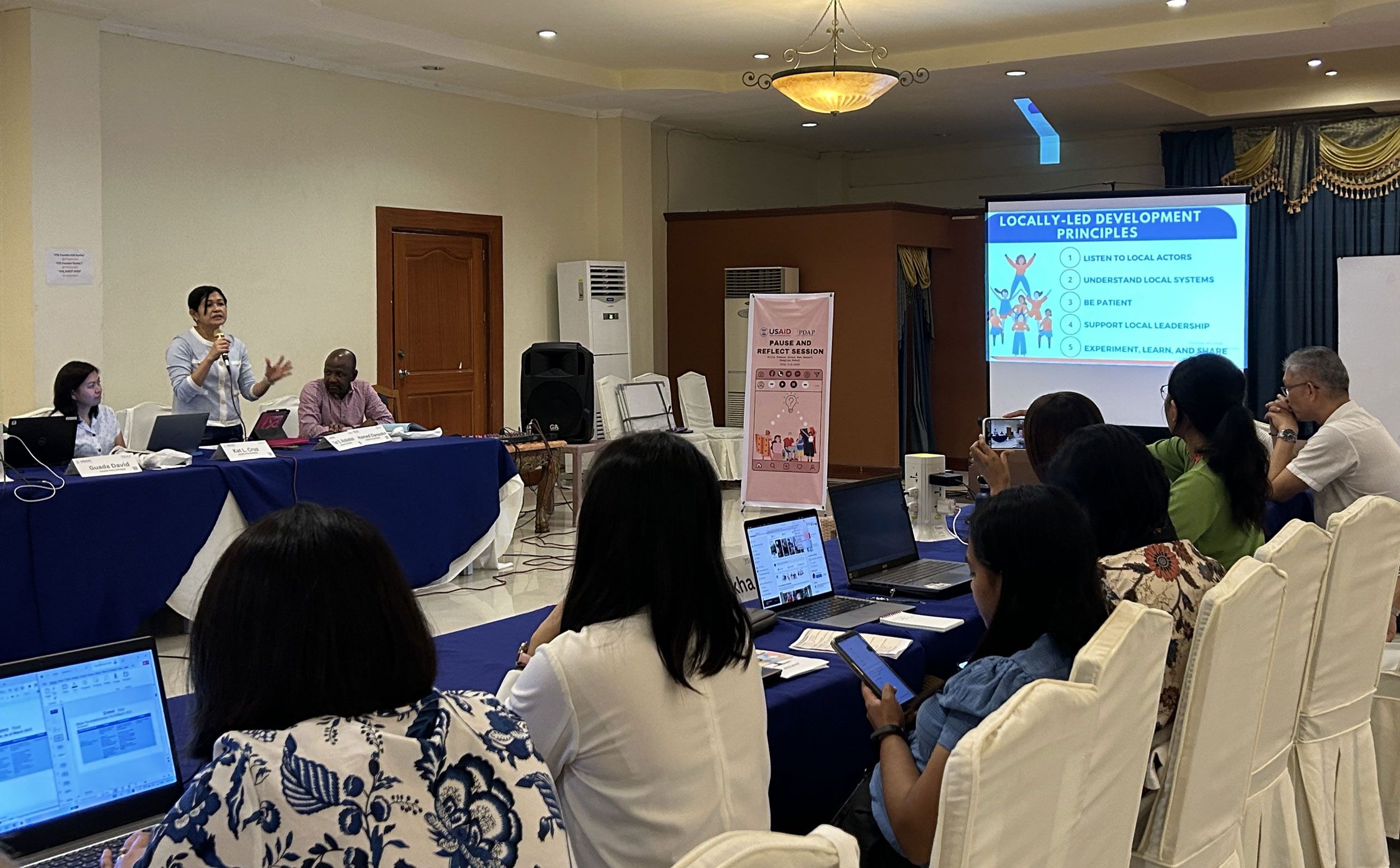SEAWEED PROJECT
The Seaweeds Enterprise Action Working for Empowerment and Economic Development (SEAWEED) Project is a three-year project (March 2011 to August 31, 2014) implemented in the Caraga region in partnership with Fundacion CODESPA and funded by Agencia Española de Cooperacion International para el Desarollo (AECID). The project was a replication of a project in Sitangkai under the PRIME Program. It aimed to scale-up the seaweed industry in the Caraga region through the adoption of new seaweed farming technology, strengthening of the seaweed farmers’ organizations, and linking the seaweed farmers to the market and financial institutions.
The main beneficiaries of the SEAWEED project are 18 seaweed farmer associations in the provinces of Surigao del Sur and Surigao del Norte. PDAP provided business development services to the PO partners. These included capacity development interventions such as training, technical assistance, mentoring, and coaching on enterprise and organizational management, seaweed technology improvement, providing access to financial institutions, facilitating market linkages, and policy support and advocacy.
The SEAWEED Project contributed to pro-poor growth in the Caraga region particularly in Surigao del Sur and Surigao del Norte. The project increased the income of seaweed farmers while providing employment opportunities to both men and women as a result of the interventions intended to increase productivity and enhance the marketability/competitiveness of the seaweed products. The project resulted in (a) improved seaweeds industry with access to stable markets; (b) economically viable and sustainable seaweed farmers associations; and, (c) increased household income through value-adding products.
Testimonials
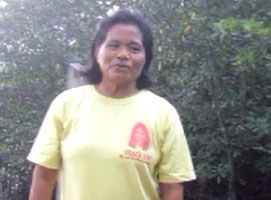
“I am Ronalyn Madrazo, married with four children and residing at Brgy Rizal, Barobo, Surigao del Sur. I am the current president of the peoples organization called the Rizal Community-Based Resource Management Peoples Organization (RCBRMPO).
My husband and I started planting seaweeds in 2008 with a capital of PhP2,000.00. After 15 days, we observed that the “ice-ice” (epiphytes) infected our seaweeds. To remedy the situation, we harvested our seaweeds pre-maturely and sold it to local traders. We lost our capital. The next cropping season, we spent another PhP2,000.00 for seaweeds and experienced the same failure. We tried again and that same year, we lost
PhP20,000 capital that made us decide to stop farming seaweeds. We were discouraged by our failures.
In 2011, the PDAP coordinators arrived in our barangay. They conducted a 3-day Seaweeds Training in Lianga, Surigao del Sur from September 19-21, 2011. In that training, I learned a lot about the modern ways of seaweeds farming. Compared to our traditional farming practices where we installed 200-meter cultivar lines, it is wise to divide the cultivar lines into four at 50 meters in length for easy monitoring, maintenance and cleaning of seaweed cultivars. I also learned that the proper distance of planting seaweed propagules is around 12 inches using a new pest-resilient, high yielding variety which we called “giant”. Before our traditional belief is that seaweed farming is seasonal and we could only harvest once to twice a year from the months of November to March, I discovered in the training that we could actually harvest 3 times a year every 45 days after planting. I gained self-confidence and to apply the knowledge and skills that I learned in the training, I persuaded my husband to invest again in seaweeds farming. We started with P15,000 capital. We were able to harvest 3 times from January to December 2012 where we earned a net income of Php 60,000.
Our organization was able to access assistance for the nursery project (of PDAP) on May 3, 2014 for the seedlings valued at PhP10,000.Since then, the nursery generated income from the sales of seedlings amounting to P16,800.00 posting an accumulated net sales of P6,800.00 apart from the standing crop which are still available in our nursery. With the assistance of the project, farmer members can access seedlings from the nursery and pay the organization later during harvest time. The project is a big help to the organization and to our community, in general.
As of now, we have access to the market for our dried seaweed products like DAFO which act as the local market consolidator. Unlike before, there was only one local trader who controls the price of seaweeds. The intervention of the LMC buying our dried seaweed products at fair market prices is of great help to us farmers.
As president of RCBRMPO, PDAP has done so much for us in terms of organizational development improving our leadership and management and as well the installation of our internal control systems where all our financial transactions are properly recorded.”
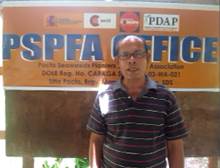
“I am Jose Panganoron Jr.,married with two children and residing at Brgy Manyayay, Lainga, Surigao del Sur. I am currently the president of the Pocto Seaweeds Planters and Farmers Association (PSPFA) with a total membership of 56 members. We are a growing organization receiving assistance from AECID, CODESPA and PDAP in their efforts to uplift individual lives through seaweeds farming. Among the projects implemented was the establishment of seaweeds nursery with a working area and solar dryer. However, these facilities were destroyed by the typhoon leaving only the working area which we are using until now to dry our seaweeds to ensure high quality of our products.
The PDAP project implementers have also imparted trainings aimed at improving the capacities of our organization concerning management, basic accounting and bookkeeping for our internal control systems. As of now, we already have a bank account and we continued to do our part as members by setting-up a capital build-up fund and paying our monthly dues. We have even agreed to volunteer ourselves to use our own money for fares and transportation expenses so the organizational funds could solely be used for other purposes like supplies and other needs.
We are so grateful with PDAP for helping us and we wish that more communities will benefit from their assistance.”
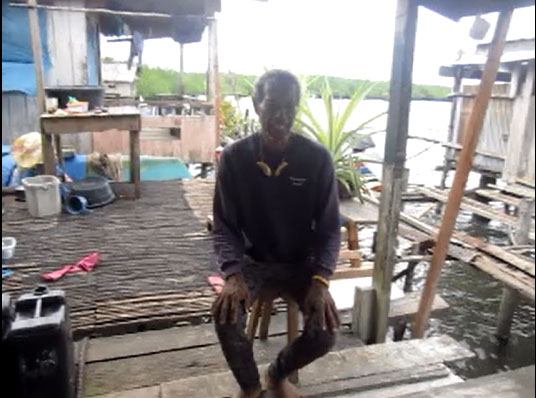
“I am Felipe Condolon, married with 5 children and residing at Brgy Liatimco, Lianga, Surigao del Sur. I am the current president of Kaliwatan sa EsCon nga mga Mag uuma ug Magingisda Kahugpungan alang sa Kalambuan (KEMMAKK) which was organized in 2003. Before, we have 40 members but now, the remaining active members are only 24 because the senior members have died while other members became inactive.
PDAP has helped our organization through the seaweeds technical trainings and the establishment of seaweeds nursery as well as, the fish coral structure. We are so grateful with the implementation of the project that’s why we volunteered our time and free labor as local counterpart to support these projects. We are happy because we are already harvesting the fruits of our labor. We have improved our seaweeds production and marketing. This has increased the income of our members. Our organization is doing well because of the education and trainings we have received from the PDAP project. Thank you PDAP and CODESPA for all your support. We hope you continue helping other seaweed farmers’ organizations.”
Useful links
Contact us
Partnership for Development Assistance in the Philippines Inc. (PDAP)
Email: [email protected]; [email protected]
Copyright 2024 By PDAP

